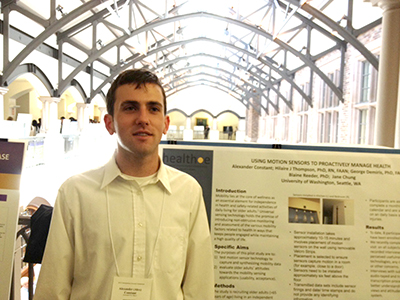Alexander

Information Technology
Autism was something I never talked about or thought of in depth when I was younger, even though I had to accommodate it throughout my high school education. For the University of Washington (UW), I wrote one of my application essays about my experience with autism, which helped me feel empowered by having a disability.
When I was accepted to college, no one contacted me about getting accommodations for my disability. During the first week of school, I went to a seminar where all diversity-related student organizations presented their materials. I attended a presentation and was surprised when some people sounded less positive than I imagined they would be about the disability community and services. This made we want to explore autism more and to delve into other facets of disability culture.
In college, I quickly realized that I needed the accommodations that I used in high school. As such, I ended up getting re-diagnosed for autism, which allowed me to learn a lot about myself. This took a very long time. I finally received my accommodations during my third quarter at the university. The academic accommodations have been very convenient and private.
I became interested in technology after doing research on “smart home” technology. I also worked as a student technician in the UW libraries, which pushed me to focus my major on information technology, which is the use of computers, storage, networking and other devices, infrastructure and processes to create, process, store, secure and exchange electronic data.
Though I have encountered some challenges, I have grown as a person and learned the positive aspects of the disability community and culture. I joined a large community called AccessSTEM after seeing fliers in the Disability Resources for Students office. Through a friend who also had a disability, I heard about the Autistic Self-Advocacy Network and a disability justice circle. Because of these networks and my own re-diagnosis at age 19, I feel more open about talking about my autism and autistic perspectives. I never want people to feel shame for who they are or what they represent.